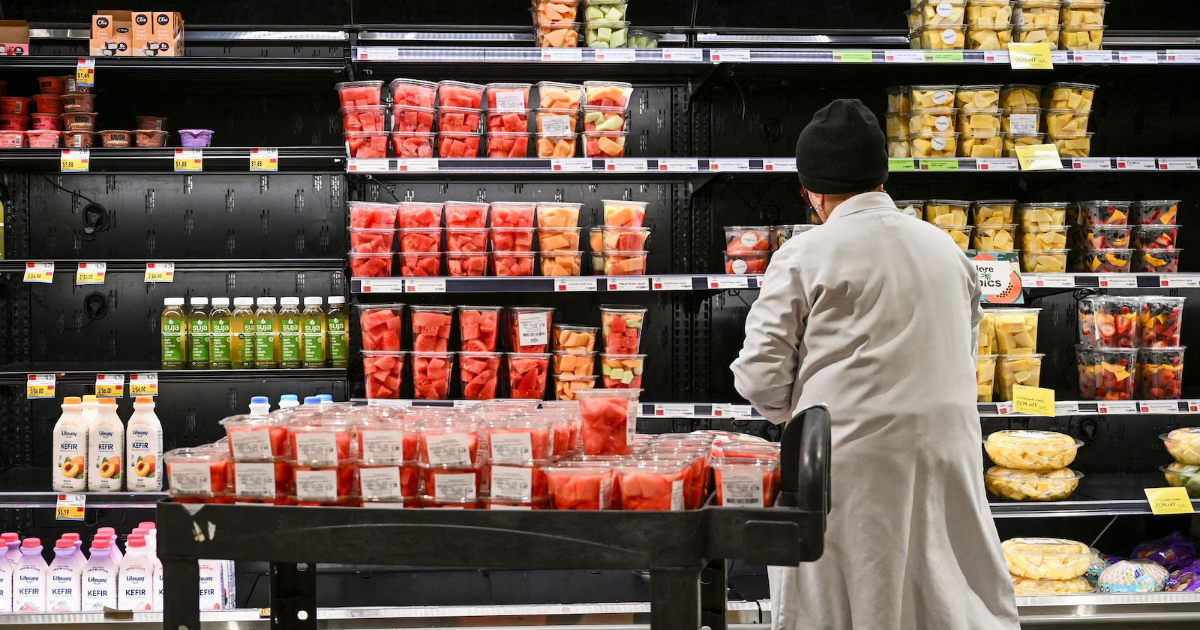Price increases remain above the Fed’s target rate of 2%.
Consumer prices rose 2.4% in March compared to a year ago, marking a cooldown during a period that preceded the recession warnings and market turmoil following President Donald Trump’s recent escalation of tariffs. The reading came in lower than economists expected.
Even as overall cost hikes slowed, egg prices soared 60% higher than a year prior. Bird flu has decimated the egg supply, lifting prices higher.
The fresh data arrives a day after a day after Trump paused some tariffs and U.S. stocks rallied.
In February, year-over-year inflation rose 2.8% compared to a year prior.
Trump last week issued 10% tariffs on imports from nearly all countries, as well as so-called “reciprocal tariffs” targeting about 75 nations, but Trump announced a 90-day pause of those reciprocal tariffs on Wednesday.
Alongside the pause of some tariffs, Trump announced additional tariffs on China, increasing the cumulative duties on Chinese goods from 104% to 125%. The escalation came in response to a fresh round of tariffs from China that raised levies on U.S. goods to 84%.
Economists widely expect the tariffs that remain in place to increase prices for some consumer goods, though the exact timing and extent of the price hikes remain unclear.
Last month, Federal Reserve Chair Jerome Powell said Trump’s tariffs were partly to blame for price increases that had taken place in February.

A trader works on the floor at the New York Stock Exchange in New York City, April 9, 2025.
Angela Weiss/AFP via Getty Images
Despite escalating trade tensions and market turbulence since Trump took office in January, the economy remains in solid shape by several key measures.
The unemployment rate stands at a historically low level. Meanwhile, inflation sits well below a peak attained in 2022, though price increases register nearly a percentage point higher than the Fed’s goal of 2%.
Hiring surged in March, blowing past economists’ expectations and accelerating job growth from the previous month, government data last week showed.
Key indicators “still show a solid economy,” Powell said on Friday.
However, tariffs threaten to derail hiring and worsen inflation, multiple analysts previously told ABC News, before Trump paused his “reciprocal tariffs” for 90 days.
Far-reaching levies increase the likelihood of a recession by driving up prices, sapping consumer spending, slowing business activity and risking layoffs, they said.



